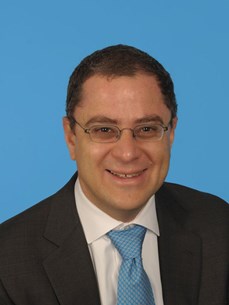Meeting
2023 ASCO Annual Meeting

Memorial Sloan Kettering Cancer Center and Weill Cornell Medical College, Cornell University, New York, NY
Ghassan K. Abou-Alfa , Wei-Peng Yong , Stephen Lam Chang , Jia Fan , Han Chong Toh , Thomas Yau , SuPin Choo , Jing Wang , Nicole Kusuma , Christy Ma , Shukui Qin
Background: The overall prognosis of patients with advanced Hepatitis B-related hepatocellular carcinoma (HCC) remains poor, and treatment options are limited. In an IIT study conducted in China (NCT05339321), SCG101 following lymphodepletion (cy-flu) as second-line setting or beyond in patients with Hep B-related HCC has shown acceptable safety profile, reduction in HBsAg levels (>1 log) and tumor control. A phase I/II trial has been initiated to evaluate safety and RP2D of autologous SCG101 T cell therapy in Hepatitis B virus-related HCC (NCT05417932). Methods: This multicenter, open-label, 3+3 dose-escalation phase I trial is ongoing across 7 sites in the United States, Singapore and Hong Kong SAR, and a parallel study is done in mainland China across 8 sites. Eligible patients have a histologically confirmed HCC, not amenable to curative intent (surgery or locoregional therapy) and failed ≥2 standard line of therapies, match any of HLA-A*02:01, *02:02, *02:03, *02:04, *02:07, *02:09,*02:16, have positive serum (or tumor) HBsAg, HBV-DNA <2000 IU/ml, BCLC B or C, CP≤7, with measurable disease at screening (mRECIST and RECIST v1.1), ECOG PS<1. Patients with CNS metastasis, prior liver transplant, autoimmune disease or prior cell therapy are excluded. SCG101 T cells is manufactured in Singapore under cGMP and ship to all study sites across the U.S, Singapore and Hong Kong SAR, while SCG101 T cells for the China sites is manufactured in SCG Cell Therapy’s China facility. Patients will receive a single dose of SCG101 T cell therapy following lymphodepletion (cy-flu). Endpoints include safety, MTD and RP2D. Secondary endpoints include ORR, DOR, PFS, OS, changes in serum HBsAg. Safety is monitored together with Data Review Committee. The study is actively enrolling, and the phase II portion of the trial is expected to be initiated by H2 2023. Autologous SCG101 T cell therapy may provide a new treatment option for patients with advanced Hepatitis B virus-related HCC. Clinical trial information: NCT05417932.
Disclaimer
This material on this page is ©2024 American Society of Clinical Oncology, all rights reserved. Licensing available upon request. For more information, please contact licensing@asco.org
2023 ASCO Annual Meeting
Poster Session
Gastrointestinal Cancer—Gastroesophageal, Pancreatic, and Hepatobiliary
Gastrointestinal Cancer—Gastroesophageal, Pancreatic, and Hepatobiliary
Hepatobiliary Cancer - Advanced/Metastatic Disease
NCT05417932
J Clin Oncol 41, 2023 (suppl 16; abstr TPS4181)
10.1200/JCO.2023.41.16_suppl.TPS4181
TPS4181
497a
Abstract Disclosures
2022 ASCO Gastrointestinal Cancers Symposium
First Author: Ann-Lii Cheng
2023 ASCO Annual Meeting
First Author: Biwei Gao
2020 Gastrointestinal Cancers Symposium
First Author: Peter R. Galle
2023 ASCO Gastrointestinal Cancers Symposium
First Author: T.R. Jeffry Evans